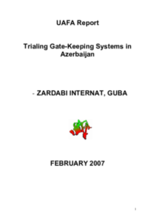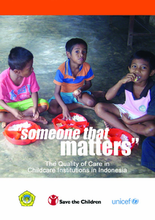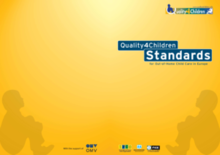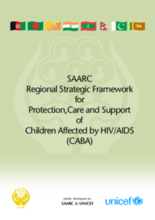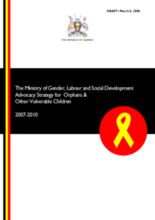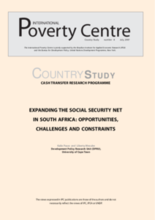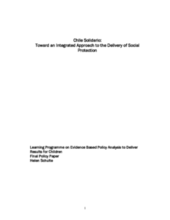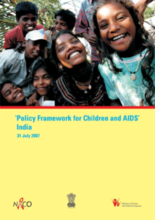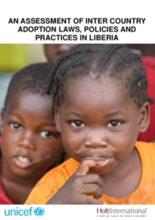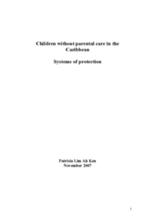Displaying 1591 - 1600 of 1798
Documents implementation of Azerbaijan's national de-institutionalisation and alternative care programming
Comprehensive evaluation of national responses and level of care standards for children without parental care in Indonesia.
A set of standards on the process of a child or young person entering care, being cared for, and leaving care, based primarily on the views of children, families, and caregivers.
A regional strategic framework for coordinating policies to protect, care and support children affected by HIV/AIDS in South Asia.
An advocacy strategy to increase support for orphans and OVC in Uganda.
Examines constraints to expansion of the social welfare net in South Africa. Cites substitution taking place within the social budget since education and health expenditures have already declined in favour of increased welfare transfer expenditures.
Examination of Chile Solidario social protection programme which shows that the focus of policy makers and researchers should be on integration of cash transfers within broader social protection policies.
This Policy Framework seeks to broaden the focus to address the needs of the overwhelming majority of children in India affected by HIV/AIDS by covering a broader agenda, spanning both the medical and socioeconomic dimensions of the epidemic as it affects children.
This report presents the findings of an assessment conducted between 8 July and 22 August 2006 that gathered and analyzed information on inter-country adoption to support strengthening Liberia’s adoption laws and develop operating guidelines for adoption agencies.
A regional assessment of responses to children outside parental care in the Caribbean. Extensive research on successful examples of alternative care. Includes recommendations and lessons learned.

